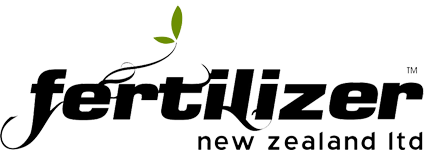viewpoint
October 2015
with John Barnes – Managing Director
Although TPP may seem a long way from the farm gate, the realities are that it does have a reflection on the price you get for your produce. After all, the price you (the farmer) receive will depend on where it is sold and the price received for the final product.
There has been a huge amount of speculation regarding the TPP and this has only been heightened by the secrecy of the discussions which have been held over the last five years.
However, the twelve country trade agreement was signed on Tuesday 6th October 2015 our time and now some of the dust is beginning to settle. The Government has still not released the documents which show the detail so no doubt there will be some revelations in that. But it appears from what we know that the detail will cover things like patents and our ability to tax online sellers, Amazon, Google, Microsoft and suchlike. Good luck with that. Nobody other than the USA has been able to get tax out of these guys to date.
But in our business of agriculture it would seem that we have come up against the same old hurdles of border protection and subsidies paid to farmers in countries like the USA, Canada and Japan. Our meat and horticulture sectors seem to be happy in the main but dairy has not made much progress it seems. The important thing is that nobody in the farming sector appears to be worse off and most have made some gains. Tariffs and access to foreign markets are a long standing issue and history shows us that they are only broken down gradually over time. Dairy is again the major sticking point but only the extreme optimists among us would have expected otherwise. Perhaps the Government made a rod for their own backs by being a bit gung-ho on their chances of reducing tariffs on dairy in the early part of negotiations.
Overall, though, I think the majority of people in New Zealand would say that we are better to be part of a liberalised trading group that is attempting to break down borders than stand outside and remain in isolation fighting on our own. The big economies have the power and that will not change, but if we are aligned with them in a trade agreement we at least have some protections and protocols for appeal should a member country do something to us on the trade front that is simply unacceptable.
The opposition parties in our Parliament will pick through the details as they should, and some will vote against the TPP agreement on the grounds that some part of our independence has been lost. And they have a point on some of these issues, tax, and sovereignty, corporate power and so on. We only need to read a few international news articles to know that this same debate will rage in the American Senate where their politicians will stand against what they see as too many concessions being given to countries like us by their negotiators.
In business, a good deal is where all parties are mostly happy and this would seem to sum up the Trans Pacific Partnership deal recently signed but not yet ratified by New Zealand, Australia, USA, Japan, Chile, Mexico, Canada, Peru, Argentina, Malaysia, Brunei, and Vietnam.
Last but not least, we are told that additions and alterations to the agreement can and will be made over time and so hopefully we can improve our position in the near future.
ZINC
A number of trace minerals are required by stock. Feeds consumed by cattle may supply most trace minerals in inadequate amounts. However, some minerals may be severely or at least marginally deficient in stock diets. Even marginal mineral deficiencies can reduce growth, reproduction and/or health of cattle showing few, if any, clinical signs of deficiency. Other trace minerals such as iron and molybdenum may be naturally present in feeds in levels high enough to reduce animal productivity.
Certain trace minerals affect immunity and may affect disease susceptibility in cattle. Selenium, copper, zinc, cobalt and iron have been shown to alter various components of the immune system. Reduced disease resistance has been observed in ruminants deficient in selenium, copper and cobalt.
The trace element Zinc is rarely discussed, but plays a role in both animals and humans. Zinc is an important element for stock health. Zinc plays a significant role in preventing and limiting facial eczema as well as affecting reproduction. Zinc is also an important element for plant growth, being required in several enzymes, growth promoting hormones and in the formation of starch formation as well as in seed production and maturation. Zinc is the most readily soluble of all the trace elements in the soil.
Gladys Reid wrote in the Dairy Exporter [June 1998] (Abridged)
Here is a summary of the zinc problem.
Poor appetite, growth retardation and impaired immunity to disease are the classical symptoms of limited zinc availability. Zinc is required for protein synthesis, heme synthesis, gene expression and embryogenesis. Deficiencies occur first in cells with a rapid turnover. Muscle, bone, skin and hair account for 95% of body zinc. Muscle and bone zinc are released for body needs during weight loss. Plasma zinc levels crash during weight recovery. Plasma zinc is less than 0.1% of body zinc readily available during stress.
It can be concluded that any stress (including zinc depletion) during calving and during onset of lactation will reduce feed intake and precipitate other metabolic disasters.
We know little about the NZ problem of high protein forage and the effect of stress-induced zinc depletion.High protein diet in early lactation damages the liver. A variation in daily food intake on a high protein diet can be modified with supplemental dietary zinc.
This variation in food intake on a high protein ration also disappears in underfed animals without zinc supplementation.


